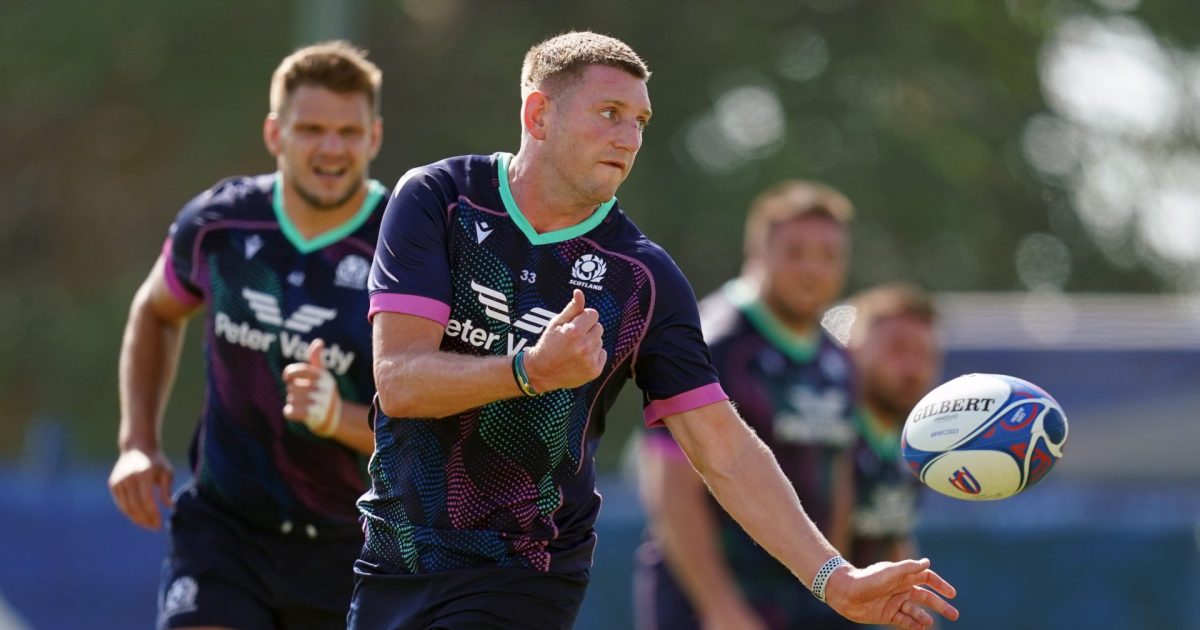Scotland are ready to ramp up preparations for Tonga in the coming days after “a good, productive week” of down time and recuperation mixed with intense training sessions since their opening World Cup match against South Africa.
The Scots were idle on the second weekend of the tournament after beginning their campaign with an 18-3 defeat by the defending champions in a gruelling showdown in Marseille on September 10.
The players were given three days off with their families after that match and returned to the training pitch in Nice on Thursday before undertaking further sessions on Friday and Sunday.
The Scots’ regular Test week routine effectively begins on Tuesday ahead of next Sunday’s meeting with Tonga, who lost 59-16 to Ireland in their opening match on Saturday.
“It’s been a good, productive week,” said Scotland’s strength and conditioning coach Stuart Yule. “We had some time off after the game to allow the players to recuperate, recover and spend some time with their families.
“We had time to get reviews done and then we came back into training on Thursday and had three good physical sessions (Thursday, Friday and Sunday) before we came back into the Test match week.
“It’s been a good opportunity to get some more physical work in because it’s a long tournament and it’s important we retain our fitness through this period.”
With a full fortnight between their first two games at the World Cup, Yule explained that the Scots had to find the right balance between down time and keeping the players in prime condition.
“It’s a long tournament, but I think it was an opportunity that we’ve had and we’ve taken to work hard,” he said.
“The way the tournament is, every team will have different situations in terms of where that week is and what it means.
“Recuperation and recovery is vital for every player in this tournament because it’s when you grow and adapt.
“That few days off after South Africa allowed the bodies to recuperate so in the first session back the players were in excellent form, ready to go again, full of enthusiasm and motivation to work hard in the few days prior to the week of the Tonga match.”
The start of the World Cup coincided with France sizzling in a late-summer heatwave, with temperatures across the country in the high 20s and even into the 30s since the tournament began. Yule has been impressed with the way the Scots have acclimatised to working in such intense heat.
“We were fortunate that right at the start of pre-season we had some excellent weather in Scotland and we had a couple of weeks training out here in France (in June and August), so we’ve been exposing the players regularly to the heat,” said Yule.
“There’s a perceptual aspect to the heat as well and once you’ve been exposed to it for a while that perception slowly starts to reduce. It’s something we’ve definitely had to consider, especially in terms of hydration and cooling.
“This group’s resilient, it’s the best group I’ve been with in terms of showing an ability to perform in the heat. They are excellent at getting their heads down and doing the work.
“We’ve had a long period together where we’ve been working hard on our underlying fitness levels and supporting the players with their recovery between training days. The heat’s not affected at all how we’ve prepared.”






































































